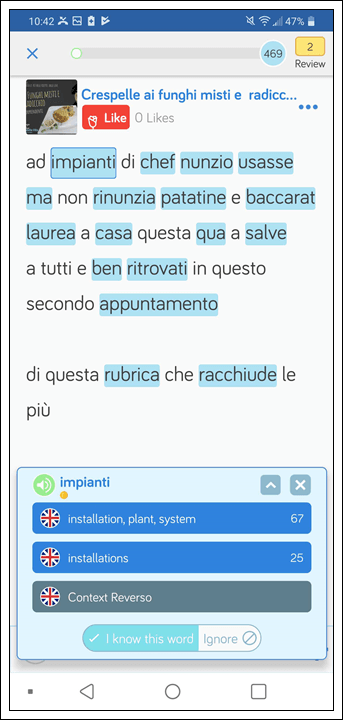Italian Jokes and Sense of Humour: Have a Laugh all’Italiana
When you hear that someone has a British sense of humour, for example, you think about a mixture of wit and sarcasm. What does it mean to have an Italian sense of humour, though? Let’s explore some Italian jokes and pranks that Italians find funny.

Italian Sense of Humour and Films
Italians definitely like slapstick. The Benny Hill meets Mr Bean kind of jokes tend to get a lot of appreciation from them. In fact, the word “slapstick” is of Italian origin.
Bataccio is an object composed of two wooden slats which was used in commedia dell’arte (a kind of improvised comedy popular in Italy between the 16th and 18th centuries). The item would make a loud sound and was used in theatre to achieve a sound effect, often for a comedic purpose. The word translates to English as “slapstick”.
A good example of a hilarious Italian slapstick comedy is Johnny Stecchino by and starring Roberto Benigni. This Italian movie is full of simple but entertaining jokes, which will leave you with sore tummy muscles.
Italians are also amused by a more sophisticated sense of humour. A good example is a comedic-in-nature drama by the same Roberto Benigni ,“Life is Beautiful” (La Vita è Bella). Many Italian comedies are, in fact, bitter-sweet.
It’s worth mentioning an Italian comedy genre called “Commedia all’italiana” (comedy Italian style). The characteristics of the genre include strong language, saucy topics and satire. These movies were made between late ’50s and the early ’70s. Notable films include:
I soliti ignoti (Big Deal on Madonna Street)
Tutti a casa (Everybody Go Home!)
Divorzio all’italiana (Divorce Italian Style)
Sedotta e abbandonata (Seduced and Abandoned)
Similarly, modern Italian comedies are often a mixture of comedy and drama. A good example is La Mafia Uccide Solo d’Estate (The Mafia Kills Only in Summer), which is a light movie about a heavy topic: organized crime. Another popular recent movie that represents this tendency well is Perfetti Sconosciuti (Perfect Strangers), which deals with secrets we keep from others.
Let’s not forget about something lighter, namely, parody. Checco Zalone is a pseudonym of an extremely popular comedian, Luca Pasquale Medici. His movies focus on Italian problems and present Italian characteristics in a cracked mirror.
Watching any of the above-mentioned movies will make you not only better understand the Italian sense of humour and help you practice the language.

Italian Jokes
Movies are an important source of laughter, but the jokes Italians tell one another are different from what we can see on the screen. So what are Italian jokes (barzellette) about? Many things!
Police officers and more specifically carabinieri (Italian gendarmerie) are a common theme of Italian jokes. Policemen are accused of being not so smart and not too eager to work. Here’s an example:
Conosci un uomo senza un braccio che si chiama Gino? (Do you know a man without an arm whose name is Gino?)
Non so. Come si chiama il secondo braccio. (I don’t know. What’s the other arm’s name?)

Italians, like many other nationalities, make fun of blondes. The main source of humor is yet again their alleged lack of intelligence:
Una bionda ha ordinato una pizza. Il pizzaiolo chiede:
Dovrei tagliare in 4 o 8 fette?
In 4! Come mai potrei mangiare 8 fette?
(A blonde has ordered a pizza. The pizza maker asks:
Should I cut it in 4 or 8 pieces?
In 4! How could I possibly eat 8 pieces?)
Other themes of Italian jokes are women, men, marriage, doctor’s visits and political jokes. For an Italian learner probably the latter are the most difficult ones to understand. They require not only knowledge of the language but also of the country’s political situation.
Still, a lot of jokes can be challenging to you if you’ve never lived in Italy. Let’s take this one as an example:
Dov’è Philadelphia? (Where’s Philadelphia?)
In frigo. (In the fridge.)
This joke is very simple to understand on a linguistic level. It’s just a few very easy words that even a beginner can get. However, to actually understand the joke, you need to know that Philadelphia is a brand of cream cheese.
Practical Italian Jokes and Pranks
Italians, like any other nationality, like practical jokes and pranks (scherzi).
The best occasion to come up with some jokes and pranks and more importantly, get away with them, is April Fool’s Day. Pesce d’aprile (direct translation: April fish) is a tradition which came to Italy from France. It’s also the name of a child’s play. On this day children tape paper fish to their friends’ backs. The point is to do it in such a way that the child doesn’t realize that it has happened.
These days everyone plays pranks. Be careful what you read in newspapers on the 1st of April. If it sounds very improbable, it’s probably just an April Fool’s joke.
Of course, some people can’t help themselves and they play pranks on their friends and family members all year long!

Jokes about Italy and Italians
We know already what kind of humour Italians like, what Italian jokes are about and that practical jokes are a big thing in Italy. Now we’ll have a look at jokes about Italy and Italians.
Some of them are puns like this one:
Have you heard about the Italian chef?
No, what happened?
He pasta away.
Many other jokes are related to stereotypes about Italians, among others, to the Mafia and crime:
Do you know why did the Mafia cross the road?
Just forget about it.

Another source of humor is the fact that Italians use hand gestures a lot when they speak:
Do you know how to silence an Italian?
Tie his hands behind his back.
Whether you find these jokes funny or not, it’s a matter of taste. I hope that the topic of today’s article has improved your mood and you know more about Italian jokes and sense of humor. If you want to learn more about Italian humor with a touch of informality, you can check out this post about Italian slang.
Learning Italian using content you love
One way to keep your Italian studies on the right path is to stay motivated. And a great way to stay motivated is to use content you love.
That’s why using LingQ is the best way to learn Italian, it allows you to import content you love and turn that into an interactive lesson.
Below is a lesson in LingQ that I’ve created by importing a video from YouTube.

As you can see, LingQ pulls the closed captions and makes them easy to read. You can also look up the words you don’t know and save them for review with a single tap. LingQ also imports the audio and video to help you listen as you go through. Check it out and start learning Italian today. It’s free to try!
LingQ is available for desktop as well as Android and iOS.
***
Magdalena Osiejewicz-Cooper has lived in Bologna and Palermo. Apart from Italian she speaks fluent Polish and French. She is currently self-studying Spanish.

